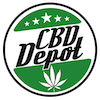Introduction
CBD (cannabidiol) has gained significant popularity in recent years for its potential health benefits. However, its legality remains a subject of confusion and debate. This comprehensive guide aims to provide a detailed overview of the legal status of CBD, addressing the variations in laws and regulations across different regions. Whether you’re a consumer, retailer, or simply curious about CBD, this guide will help you navigate the complex legal landscape surrounding this cannabinoid.
Understanding CBD
What is CBD? – Provide a brief explanation of CBD, its origin, and its non-psychoactive nature.
Differentiating CBD from THC – Clarify the distinction between CBD and THC (tetrahydrocannabinol), the psychoactive compound found in cannabis.
The Farm Bill of 2018 and CBD Legalization in the United States
- The Farm Bill of 2018 – Discuss the key provisions of the Farm Bill, which legalized the cultivation, production, and sale of hemp-derived CBD products.
- Hemp vs. Marijuana – Explain the legal definition of hemp and its differentiation from marijuana.
- CBD Legalization at the Federal Level – Discuss how CBD derived from hemp became federally legal in the United States and its implications for consumers and businesses.
CBD and International Laws
- Global CBD Regulations – Provide an overview of the legal status of CBD in various countries and regions, highlighting the differences and similarities.
- European Union – Discuss the EU regulations on CBD and the Novel Food classification.
- Canada – Explain the legal framework for CBD in Canada and the distinction between CBD derived from hemp and CBD derived from marijuana.
State and Local Laws in the United States
- State Laws on CBD – Explore the variations in CBD laws among different states in the United States, including restrictions, licensing requirements, and THC content limits.
- Local Regulations – Highlight the importance of considering local regulations and ordinances that may impact the sale and use of CBD products.
FDA Regulations and CBD
- FDA Regulation of CBD – Explain the current stance of the U.S. Food and Drug Administration (FDA) regarding CBD products, including the approval of Epidiolex and ongoing efforts to establish regulatory guidelines.
- Dietary Supplements and Food Products – Discuss the FDA’s position on CBD as an ingredient in dietary supplements and food products, addressing the limitations and potential risks.
Legal Considerations for Consumers and Businesses
- Consumer Guidelines – Provide advice to consumers on purchasing CBD products, including researching reputable brands, checking for third-party lab testing, and understanding labeling requirements.
- Retailers and Manufacturers – Explain the legal obligations and challenges faced by retailers and manufacturers in the CBD industry, including product testing, labeling, and marketing restrictions.
Future Outlook and Emerging Legislation
- Legislative Developments – Discuss ongoing legislative efforts to clarify CBD regulations at the federal and state levels, including the potential impact on CBD legality.
- International Harmonization – Explore the prospects of international harmonization of CBD regulations and the potential benefits it could bring.
Conclusion
Navigating the legal landscape of CBD can be complex due to variations in laws and regulations across different regions. While CBD derived from hemp is federally legal in the United States, it is essential to consider state and local regulations. Internationally, CBD laws vary significantly, and staying informed is crucial. Consumers and businesses should be aware of legal considerations and follow best practices to ensure compliance. As CBD continues to gain popularity, it is expected that regulations will evolve, shaping the future of this industry.
CBD and Drug Testing
- Understanding Drug Testing – Explain the basics of drug testing, including the different methods and substances that are typically tested for.
- THC Content in CBD Products – Discuss the potential presence of trace amounts of THC in some CBD products and the implications for drug testing.
- Risk of Testing Positive – Address the potential risk of testing positive for THC in drug tests when using CBD products and the factors that can influence the likelihood of a positive result.
- CBD Isolate vs. Full-Spectrum CBD – Compare the THC content in CBD isolate products versus full-spectrum CBD products and how it may impact drug test results.
- Tips for Minimizing Risk – Provide practical tips for individuals who may be concerned about drug testing, such as choosing CBD isolate products or opting for THC-free CBD options.
Legal Resources and Compliance
- Reliable Legal Resources – Provide a list of reputable legal resources and organizations that individuals and businesses can consult for up-to-date information on CBD legality.
- Seeking Legal Advice – Encourage individuals and businesses to seek legal counsel for specific legal questions or concerns related to CBD.
- Compliance with Regulations – Emphasize the importance of complying with applicable laws and regulations when manufacturing, distributing, or selling CBD products.
Staying Informed and Adapting
- Dynamic Nature of CBD Laws – Highlight that CBD laws and regulations are subject to change and may vary over time.
- Monitoring Legislative Updates – Encourage individuals and businesses to stay informed about legislative updates and changes to CBD regulations at the local, national, and international levels.
- Adapting to Regulatory Changes – Provide guidance on how to adapt to regulatory changes and ensure compliance with new requirements
Conclusion
Navigating the legal landscape of CBD can be challenging due to the variations in laws and regulations across different regions. It is crucial to stay informed about the legal status of CBD in your jurisdiction and understand the specific regulations that apply. Consumers should be cautious when purchasing CBD products, ensuring they come from reputable sources that comply with relevant quality and labeling standards. Businesses operating in the CBD industry should be diligent in adhering to regulatory requirements and seek legal advice to ensure compliance. By staying informed, adapting to changes, and following the appropriate guidelines, individuals and businesses can navigate the legal complexities of CBD and make informed decisions.

